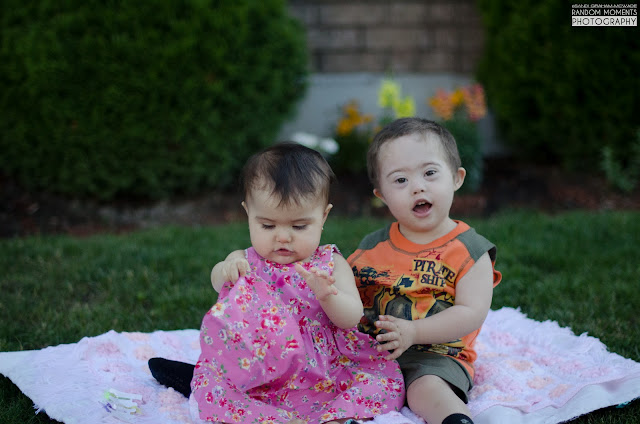How to talk about Down syndrome
The following is an article written by Stephanie Mamayson for the Canadian Down syndrome Society. This article describes the correct "Language and Terminology".
To view the actual article click the following: How to talk about Down syndrome (this is a Microsoft Word document) or visit the CDSS page here.
Language Guidelines
The correct spelling is Down syndrome. There is no apostrophe “s” (Down). The reason is because in English, adding an apostrophe indicates ownership is involved. Dr. John Langdon Down provided the first formal description of the syndrome, but he did not have Down syndrome and thus no possessive is used. Also, the “s” in syndrome is not capitalized. Other countries may continue to use “Down’s.”
The correct spelling is Down syndrome. There is no apostrophe “s” (Down). The reason is because in English, adding an apostrophe indicates ownership is involved. Dr. John Langdon Down provided the first formal description of the syndrome, but he did not have Down syndrome and thus no possessive is used. Also, the “s” in syndrome is not capitalized. Other countries may continue to use “Down’s.”
Use person-first language. Individuals with Down syndrome are people first. The emphasis should be on the individual, not the disability. For example; a baby/child/adult with Down syndrome, not “Down syndrome” child or “Downs baby.”
Down syndrome is a chromosomal arrangement that is present at conception. The term “birth defect” is not correct.
Down syndrome includes developmental disability. People with Down syndrome usually have mild to moderate intellectual delay. The term mental retardation is considered outdated in Canada and should be avoided. The term mongoloid is considered extremely inappropriate.
Avoid generalizing people with Down syndrome as “always loving”, “always smiling”, or “perpetually happy.” People with Down syndrome are not all alike. The diversity of abilities and characteristics among individuals with Down syndrome can be best described as the same for the general population.
Avoid judgmental terminology. A person with Down syndrome is not “suffering from,” “a victim of” or “afflicted with” Down syndrome. Down syndrome is not a disease and these references only diminish a person’s dignity. Suggestions include “living with Down syndrome” or “has a medical condition known as Down syndrome.”
People with Down syndrome have the same rights as everyone else and should be treated with respect.
Down syndrome is a chromosomal arrangement that is present at conception. The term “birth defect” is not correct.
Down syndrome includes developmental disability. People with Down syndrome usually have mild to moderate intellectual delay. The term mental retardation is considered outdated in Canada and should be avoided. The term mongoloid is considered extremely inappropriate.
Avoid generalizing people with Down syndrome as “always loving”, “always smiling”, or “perpetually happy.” People with Down syndrome are not all alike. The diversity of abilities and characteristics among individuals with Down syndrome can be best described as the same for the general population.
Avoid judgmental terminology. A person with Down syndrome is not “suffering from,” “a victim of” or “afflicted with” Down syndrome. Down syndrome is not a disease and these references only diminish a person’s dignity. Suggestions include “living with Down syndrome” or “has a medical condition known as Down syndrome.”
People with Down syndrome have the same rights as everyone else and should be treated with respect.
